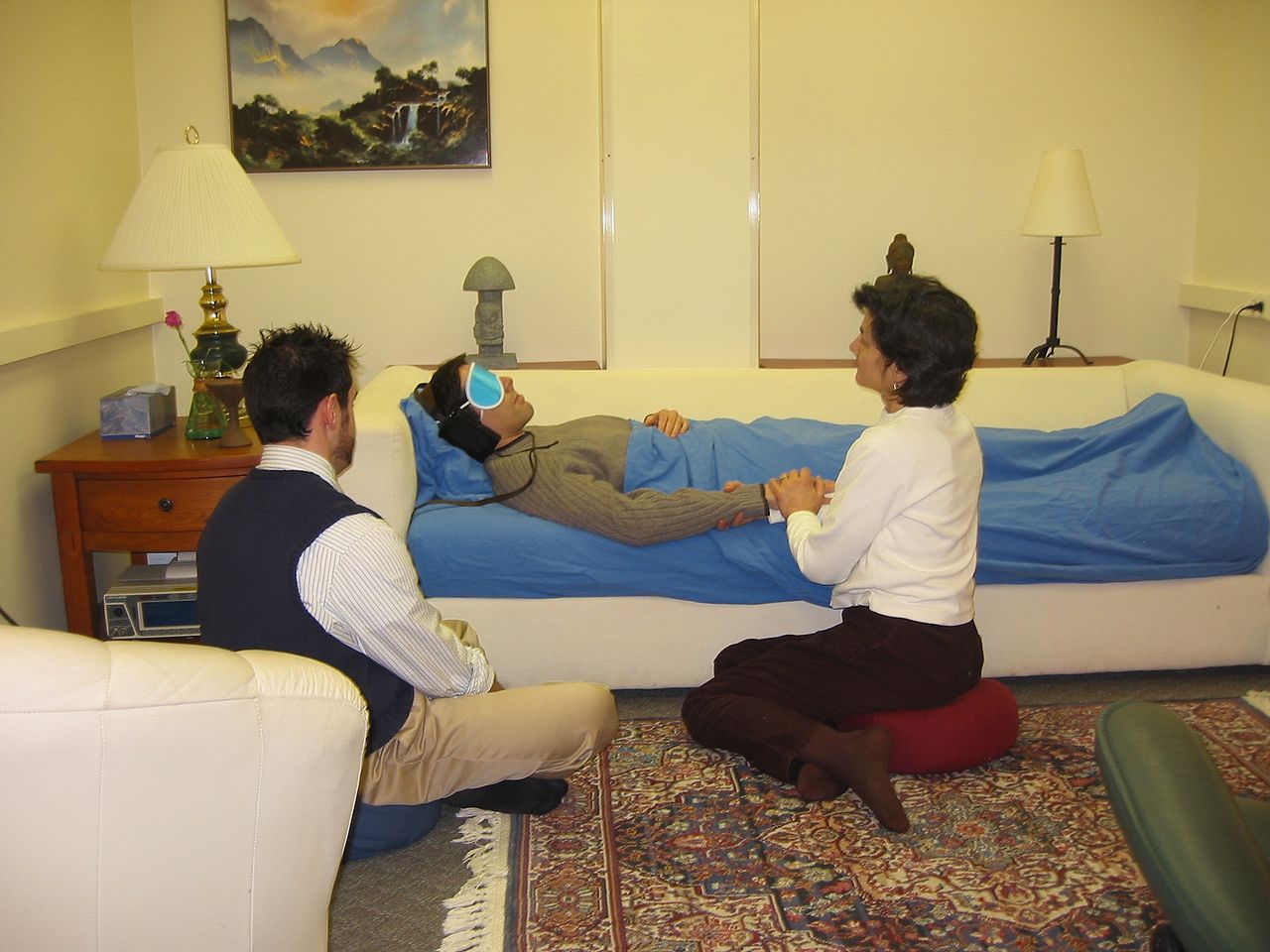Connecticut lawmakers have proposed a bill that would create the first psychedelic medicine centers on the East Coast. The bill anticipates that the Food and Drug Administration (FDA) will soon approve psilocybin and MDMA as legal treatment for depression and PTSD, respectively. If it passes, Connecticut will become an early mover as several states look to legalize psychedelics.
The bill, titled HB 5396, would aim to provide MDMA and psilocybin for medical use. It would serve only “qualified patients”—including veterans, retired first responders, “direct care” healthcare workers and people from a “historically underserved community” with a serious or life-threatening mental illness. Medical providers will need permission from the FDA to offer the drugs through “expanded access”—a rule that allows medications to be administered before they’re officially approved in special cases.
“Sitting back and not doing something is costing lives.”
The bill was approved by the state legislature’s Public Health Committee on March 18, with bipartisan support. To become law, it must pass a full floor vote and be signed by Governor Ned Lamont.
“I think that by sitting back and not doing something, as we heard the other day, is costing lives day after day after day,” said Representative Michelle Cook (D), a co-sponsor of the bill, during a public hearing. “Doing nothing, I think, would be criminal in this regard.”
The state’s health department would create a pilot program to give out grants. These would pay for patients to receive psychedelic treatment, and help cover providers’ costs. Onyx Scientific, a UK-based company that manufactures medical-grade psilocybin and MDMA for clinical trials, would be the likely source of drugs for this program. The pilot would run until psilocybin and MDMA were fully approved by the FDA. The grant fund would be funded partially by the state, and could also receive donations.
If the bill becomes law, the state must begin soliciting applications from potential providers by October 31, and approve at least three by December 28. Each treatment site would initially be granted $500,000. The state would also set up an advisory board, with several members appointed by different elected and state officials, to focus on further psychedelic reforms.
Both MDMA (also known as “ecstasy” or “molly”) and psilocybin (“magic mushrooms”) are drugs classified under Schedule I, the most restricted category in federal law. They share this status with marijuana, heroin and LSD. Defined as “drugs with no currently accepted medical use and a high potential for abuse,” even research on them is highly restricted. If approved by the FDA as a medicine, the drugs would need to be rescheduled—at least to Schedule II—or legalized entirely.
The FDA isn’t the only agency with authority here. It’s the Drug Enforcement Administration (DEA), notoriously resistant to reform, which normally decides how drugs are scheduled. President Biden can, through executive order, require the attorney general, who has authority over the DEA, to reschedule certain drugs. Congress can also change drug laws through legislation—though it has so far failed to do so in the case of marijuana. Lastly, the Supreme Court can order drugs to be rescheduled if a lawsuit is brought against the DEA—but this approach has also failed with marijuana.
States can also just choose to ignore federal law and make their own changes—as 18 states and Washington, DC have done to legalize marijuana, and now Oregon has done to legalize psilocybin for therapeutic use. The proposed bill in Connecticut doesn’t take that approach, and would instead see the state more closely follow the federal government’s lead.
In the field of psychedelic science, the Multidisciplinary Association for Psychedelic Studies (MAPS) is the closest to completing the research necessary for MDMA to become FDA-approved for severe PTSD. Meanwhile, COMPASS Pathways is researching psilocybin for treatment-resistant depression, and will soon begin the final phase of clinical trials. Another organization, Usona Institute, is researching psilocybin for major depressive disorder, and is currently in Phase 2 trials.
The “expanded access” rule is a realistic pathway for only a tiny fraction of the millions of people who may want these treatments.
Before these drugs are fully approved, it is possible for patients to get them through “expanded access.” This is an FDA rule that allows patients with a life-threatening illness to receive an un-approved experimental medicine “when no comparable or satisfactory alternative therapy options are available.” MAPS was actually approved to offer MDMA for PTSD through expanded access in December 2019—but only to a very small group of 50 patients. Both COMPASS and Usona accept applications from patients who want to get psilocybin through expanded access, but can’t guarantee they will be approved.
Expanded access is inherently very restrictive, and a realistic pathway for only a tiny fraction of the millions of people who may want these treatments. It is also not covered by health insurance, which explains why Connecticut lawmakers are proposing state grants to pay for it. Treatment costs for MDMA for PTSD are estimated to reach between $12,000-20,000 per patient (while the drugs themselves are cheap, psychedelic therapy guidelines may call for many hours of psychotherapists’ time).
But the Connecticut bill doesn’t pretend to be a way to get psychedelic healing to the masses. Instead, it’s similar to what the Canadian government is doing—granting permission to a very small group of people with severe illnesses in the name of compassion. It’s a small step in the right direction that could help pave the way to wider access.
Photograph of a psilocybin therapy experiment at Johns Hopkins University by Matthew W. Johnson via WikiMedia Commons/Creative Commons 3.0





Show Comments